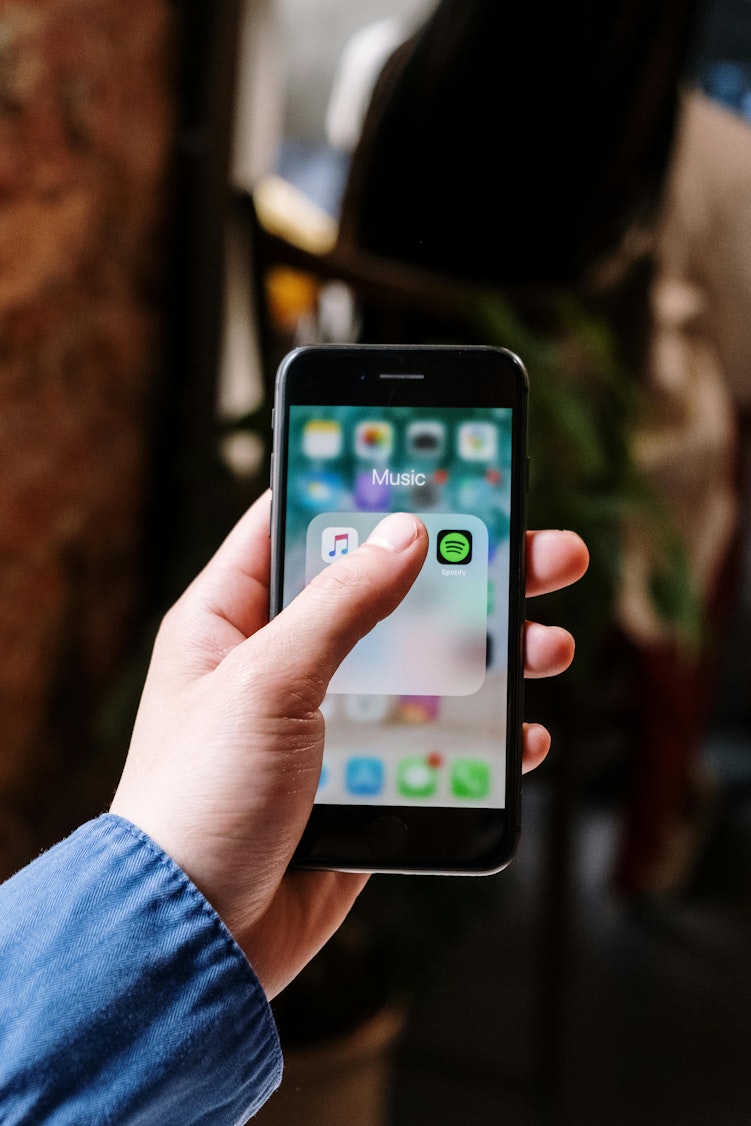Spotify Messages: what parents need to know
How can you keep it safe?

Updated September 23, 2025 • Medically reviewed by Dr. Katie Knight
Medically reviewed by Dr. Katie KnightIn this article
Quick summary
- Spotify Messages lets teens share music, podcasts, and audiobooks directly with friends and family
- The feature can be fun and engaging, but it also brings privacy, peer pressure, and safety risks
- Parents can support safe use by reviewing settings, setting boundaries, and encouraging open conversations

Music is a great way to connect with others, and technology has made it even easier to explore new genres and listen to friends' recommendations.
However, the technology we use to listen to our music can lead to privacy concerns.
Spotify has recently introduced Spotify Messages.
These are one-to-one messages within the app that let users share their favourite music, podcasts, and audiobooks directly with friends and family.
It's designed to make sharing content more seamless and personal, allowing for real-time conversations around shared interests.
But are there safety and privacy issues with this new update, so what can you do to look out for your teen?
What are Spotify Messages?
Spotify Messages is a new feature that allows users to:
- Send songs, podcasts, or audiobooks directly to friends or family within the app
- Send texts and emojis in a private chat
- Accept or reject message requests from other users
You need to be over 16 to access this feature.
Messages are being rolled out to both Free and Premium users in select markets first, with plans for broader availability.
What parents need to know
While Spotify Messages offers a new way for teens to share and discover content, it's important for parents to be aware of potential risks:
- Safety risks: as with any online communication tool, there's the potential for inappropriate content or interactions
- Age issues: the messaging service is aimed at people over the age of 16, but teens can put in a different age
- Peer pressure: the ability to see what friends are sharing can lead to feelings of inadequacy or pressure to conform
How to manage Spotify Messages for your teen
If you’re concerned about the safety and privacy risks of Spotify Messages, you can:
- Review settings: ensure that your teen has their correct age on their Spotify account
- Set boundaries: establish guidelines for appropriate use, such as limiting messaging to known contacts and setting time limits for using the app
- Monitor activity: regularly check in with your teen about their interactions on Spotify Messages and address any concerns they have
There are also safety features of Spotify Messages that may help you feel reassured.
Messages that are illegal or harmful can be reported by pressing down on the message, and users can be blocked.
This may be good to discuss with your teen so they know this is an option, should they feel uncomfortable about any interactions on the app.
Put your teen's safety first
Spotify Messages can be a fun and engaging way for teens to share their musical interests, but as with any peer to peer interaction, there are risks.
Hopefully, open communication and setting clear boundaries can help to ensure that the experience remains positive and safe.
You may also want to consider introducing your teen to luna. luna is a closed platform with NO peer to peer interaction, that educates on all aspects of adolescence – from friendships, to puberty, online use and more.
It can be a challenge to navigate teen online privacy, but luna is here to help you every step of the way.

How we created this article:
luna's team of experts comprises GPs, Dermatologists, Safeguarding Leads and Junior Doctors as well as Medical Students with specialised interests in paediatric care, mental health and gynaecology. All articles are created by experts, and reviewed by a member of luna's senior review team.
Sources:
Spotify Newsroom "Introducing Messages"
https://newsroom.spotify.com/2025-08-26/introducing-messages-a-new-way-to-share-what-you-love-on-spotify-with-friends-and-family/We'd love to keep in touch!
Sign up to our parent newsletter for emails on the latest teen trends, insights into our luna community and to keep up to date
By signing up, you are agreeing that we can use your email address to market to you. You can unsubscribe from marketing emails at any time by using the link in our emails. For more information, please review our privacy statement.